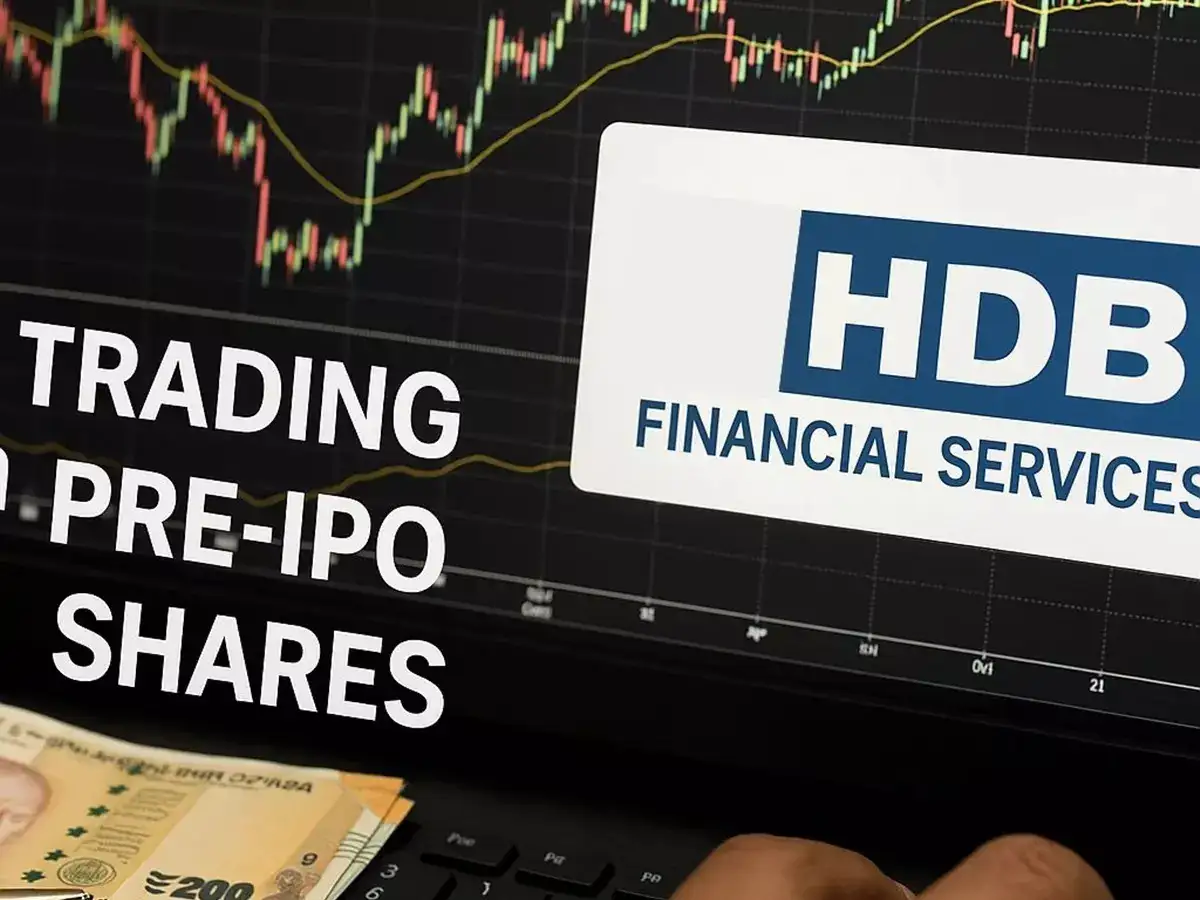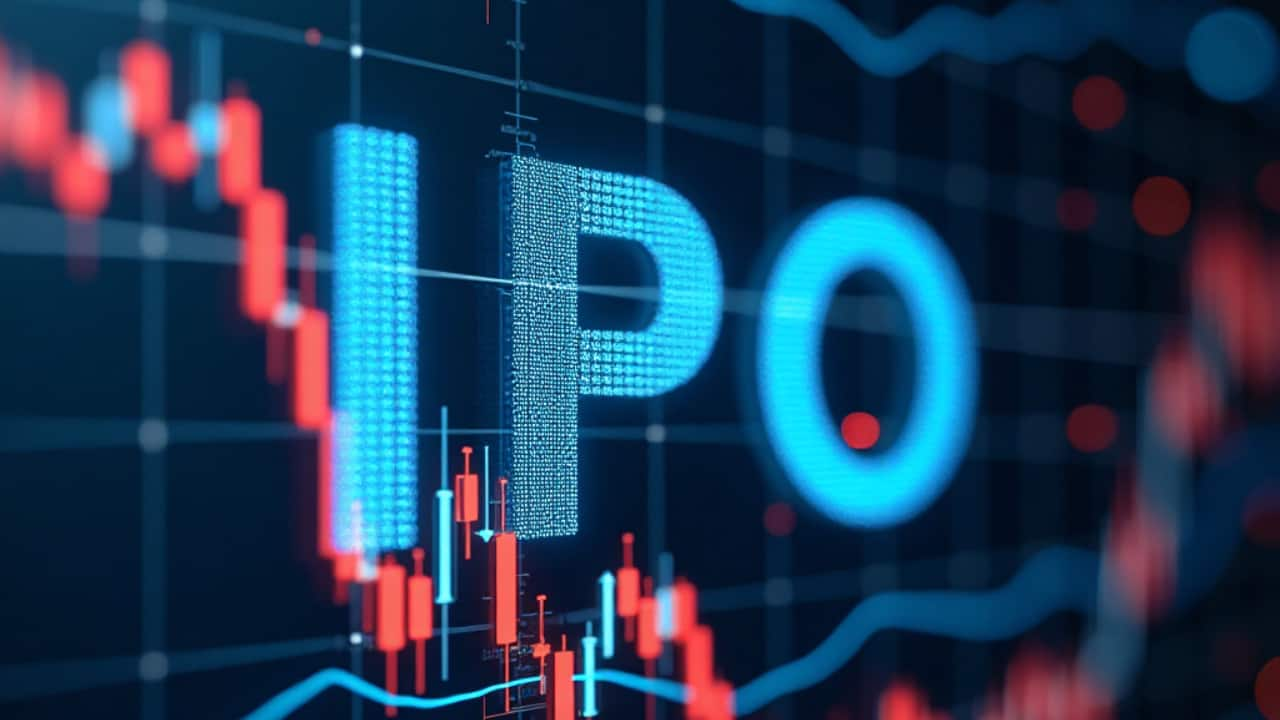HDB Unlisted Shares: A New Road to High Gains

Investment in unlisted companies is experiencing a surge in India, driven by investors seeking substantial gains before and during a company's public listing. This strategy offers the potential for a 'double advantage': valuation gains prior to listing and a premium upon the company's Initial Public Offering (IPO). This momentum is evident in the recent flurry of IPOs, making it one of the most active periods for primary markets in recent months.
A notable example is HDB Financial Services, the non-banking financial company (NBFC) arm of HDFC Bank. Despite attracting significant investor interest pre-listing, its IPO debut on July 2, 2025, raised questions about the efficacy of investing in its unlisted shares. HDB Financial Services listed at Rs 835 on both the NSE and BSE, a 12.84% premium (Rs 95) over its issue price of Rs 740. The IPO was overall subscribed 17.65 times, with Qualified Institutional Buyers (QIBs) bidding 58.6 times their portion, and non-institutional investors 10.5 times. Retail interest, however, was more subdued at 1.5 times. This stark contrast between pre-IPO grey market valuations and the actual listing price highlighted a critical pitfall: investors driven by euphoria may have acquired unlisted shares at a significantly steeper price.
Lovaii Navlakhi, Managing Director & CEO of International Money Matters, pointed out the 'FOMO effect' in unlisted shares, where sentiment heavily influences valuations, often overshadowing other critical factors. He noted that HDB Financial shares traded as high as Rs 1,200 in the grey market, while the IPO was priced at Rs 740. Navlakhi cautioned retail investors against this segment, stating they 'cannot stomach the risk of a large fall,' emphasizing its 'grey' nature – 'not black, but certainly not white.'
Manish Goel, Founder & MD, Equentis Wealth Advisory Services Limited, added that HDB Financial Services was one of the most liquid scripts in the unlisted market, trading between Rs 700-1400 in the year leading up to the IPO announcement. Its association with HDFC Bank bolstered its appeal as a highly anticipated IPO. However, the Rs 740 IPO price band for HDB Financial Services was a significant 40% lower than the Rs 1,225 levels it commanded just days prior in the unlisted market. Investors who bought shares a year earlier at Rs 1,550 faced a staggering 52% loss in value even before the IPO listed.
Goel also observed a trend of IPOs being priced at a 25-40% discount to unlisted values to encourage broader investor participation, which often gets partially adjusted on listing day. He cited the case of Waaree Energies, whose unlisted price was around Rs 2,500, IPO priced at Rs 1,500, but listed at Rs 2,500 and later traded higher, illustrating the volatility.
The initially strong retail interest in pre-IPO HDB Financial Services shares contrasted sharply with their lukewarm response to the IPO. Mohit Bhandari, CEO of Stratzy, a financial technology startup, explained that companies pursue pre-IPO sales when they anticipate less public market exuberance, aiming to lock in valuations while sentiment is warm. He stated, 'HDB Financial’s tepid IPO oversubscription (by retail investors) compared to the frenzy in its unlisted shares underscores this dynamic.'
Bhandari further warned that the 'illusion of exclusivity' in pre-IPO stocks often lures retail investors, leading them to overlook chronic liquidity problems, citing examples like Chennai Super Kings shares and PharmEasy’s steep valuation slide. He highlighted that investors are increasingly having a humbling experience regarding anticipated IPO gains. Goel noted that despite HDB opening 13.5% up on listing, its IPO price band being 30-40% lower than the unlisted market caused resentment among investors. He maintained that HDB trades near its fair value and at a justified discount to peers like Bajaj Finance and CholaFin due to differences in customer profiles and return metrics.
The risks associated with investing in unlisted shares are multifold. Narendra Solanki, Head Fundamental Research- Investment Services, Anand Rathi Shares and Stock Brokers, detailed several pitfalls. Prices in the unlisted market lack transparency, often swayed by sentiment, hype, or insider news, making them susceptible to manipulation. Liquidity is a major concern, as buying or selling is not always immediate and relies on market intermediaries. Transparency is also an issue, with many deals not publicly documented, and a risk of sellers not delivering shares after payment.
Beyond these, Solanki pointed out the difficulty in valuing unlisted companies, especially without listed peers for comparison. Private firms are not subject to the same disclosure norms as listed companies, meaning investors might not receive regular financial updates. There's also the significant risk that the company might never list, leaving investors with illiquid shares. Furthermore, an investor's stake could be diluted if the company issues more shares in future funding rounds. The absence of direct regulatory or exchange oversight introduces additional hidden risks.
Nithin Kamath, founder of Zerodha, also highlighted these dangers, noting that many retail investors purchase unlisted shares based on hype and expected listing gains, often without understanding the business fundamentals. He used HDB Financial Services as an example, whose shares traded at a premium of nearly Rs 1,100 in the unlisted market just years ago, far exceeding its IPO price of Rs 740, demonstrating how significantly overpriced unlisted shares can be. Kamath stressed the lack of transparency, low liquidity, and minimal regulatory oversight in the unlisted space, advising caution and due diligence over brand value or social media hype.
Suresh Sadagopan, MD and Principal Officer of Ladder7 Wealth Planners Private Limited, echoed these sentiments, emphasizing the absence of a price discovery mechanism, potentially leading to unrealistically high unlisted prices and subsequent losses on listing. He warned of low liquidity, the possibility of an IPO not materializing as expected, and the risk of being stuck with investments for prolonged periods. Investors often carry unrealistic expectations of securing 'cheap' shares and significant listing gains, which, as seen with HDB and Swiggy, is not always the case. Swiggy, which went public in November 2024 at Rs 412 (a 7% premium over its Rs 390 IPO price), saw its unlisted shares surge by nearly 40% (Rs 355 to Rs 490) from July to September before its IPO. However, the stock plummeted by about 39% since listing, losing 41% of its value in 2025 alone, underscoring the severe post-listing risks.
Bhandari's ultimate advice is to question the pursuit of 'mirage of low-liquidity pre-IPO bets' when established, regulated companies with transparent price discovery are readily available. He suggested that angel investing might be a more honest path for those truly wishing to back early-stage businesses, rather than buying pre-IPO shares from those seeking to de-risk their own exposure. He urged investors to critically assess whether they are investing in a promising company or merely providing an exit for someone else. While high-profile listings generate buzz, investors must exercise extreme caution with unlisted shares and grey market premiums due to price volatility, lack of regulatory oversight, and the high risk of overpaying or falling victim to speculative hype.












